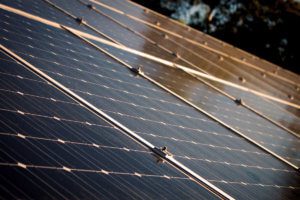
On December 5, 2019, at 10:00, a press conference initiated by the European-Ukrainian Energy Agency regarding the future of bioenergy projects in Ukraine took place at the press center of the Interfax-Ukraine news agency.
Speakers:
Oleksandra Gumeniuk – Director of European-Ukrainian Energy Agency (EUEA)
Max Lebedev – Member of the Board of European-Ukrainian Energy Agency, Partner of GOLAW
Michael Rutherford – Development Director of Khmelnytskyi Biofuel Power Plant (KBPP)
Georgy Geletukha – Chairman of the Board of the Bioenergy Association of Ukraine (BAU)
In May 2019, the Verkhovna Rada adopted a law “On Amendments to Certain Laws of Ukraine on Ensuring Competitive Conditions for Generation of Electricity from Alternative Energy Sources”, which substantially changes the rules of the game for the participants of the green energy market. According to the provisions of this law, as of January 1, 2020, entities implementing renewable energy projects (RES) will be able to obtain state support only if they participate in the auction with the support quota allocation and only if they win.
The Ministry of Energy recently issued indicative state support quotas for auctions, which will total around 50 MW per year for biomass, biogas and small hydropower producers.
Such small quotas, experts warn, make it impossible to implement large projects and lead to an outflow of investors who have already entered the market. Foreign investors who have already invested heavily in the development of bioenergy projects in Ukraine will have to abandon their plans due to the inability to obtain guaranteed state support. As a result, the development of biomass electricity production may stop altogether, and projects that are already underway will be frozen.
One of the examples is the Khmelnytskyi biofuel power plant. A group of foreign investors from Ireland and the UK is planning to build a 46 MW bio-power plant that will produce biomass electricity. The project is now in its final stages and is awaiting the first auction to secure funding. The investor has already invested 1.4 million euros in its implementation. In the future, the investor group intends to build 10 more similar stations in other regions of Ukraine, investing more than $2 billion in them and creating 5 thousand new jobs.
However, these intentions may not be realized, as the quotas proposed by the Government do not allow even one project to potentially obtain the necessary quota of state support.
This provision, say representatives of the KBPP, could cause a situation where large-scale biomass projects will not be able to obtain the necessary capacity, which will block the development of the projects needed for the grid.
Market experts also say that compared to other sources of alternative energy, biomass is the most efficient and solves a number of problems typical of solar and wind plants. In particular, it enables uninterrupted power generation in 24/7 mode, efficient use of farm by-products, opening up sources of additional income for farmers and balancing the grid.
Therefore, this industry needs additional support from the state, and therefore they propose to consider increasing the quota or introducing an additional quota for stable generation facilities.
«What we are calling for are levels of quotas which are sufficient to allow the biomass sector to attract investment at a suitable scale to assist with the balancing issues the country is facing whilst also providing jobs and economic prosperity» – emphasized Michael Rutherford, Development Director of Khmelnytskyi Biofuel Power Plant.
European-Ukrainian Energy Agency, established in 2009, unites investors from Austria, Belgium, Great Britain, Norway, Spain, Switzerland, Turkey, Ukraine, the USA and other countries that implement renewable energy projects in Ukraine using solar, wind and bio-energy (around 2 GW of operational renewable power plants, 0.5 GW under construction, 2 GW with signed pre-PPAs). http://euea-energyagency.org/.
Video of the press conference is here

The European Bank for Reconstruction and Development (EBRD) stops financing projects in the field of solar energy in Ukraine until a more rational method of supporting the development of renewable energy sources is introduced, senior banker of the EBRD’s energy department Olga Yeriomina has said at the Ukrainian Energy Week in Kyiv.
“Now this is the issue of several days when the bank may decide that in future it will not support new projects on renewable energy. We have already decided that we are not taking new projects on electricity, while we have not yet decided on wind energy,” she said.
The banker stressed that the bank is concerned about a lack of significant steps on the part of the parliament to move from the “feed-in” tariff to other, more rational systems of support for the development of renewable energy sources in the country, in particular, to “green” auctions.
“I am afraid that we will not be the last “swallow” to stop supporting projects on renewable energy, unless an immediate planned transition to a more sustainable support system for renewable energy projects begins,” she added.
According to her, the feed-in tariff has already played its role in stimulating the development of renewable energy in the country and is now a burden for the budget, from which the difference between the feed-in tariff and the tariff for energy production by traditional sources is reimbursed.